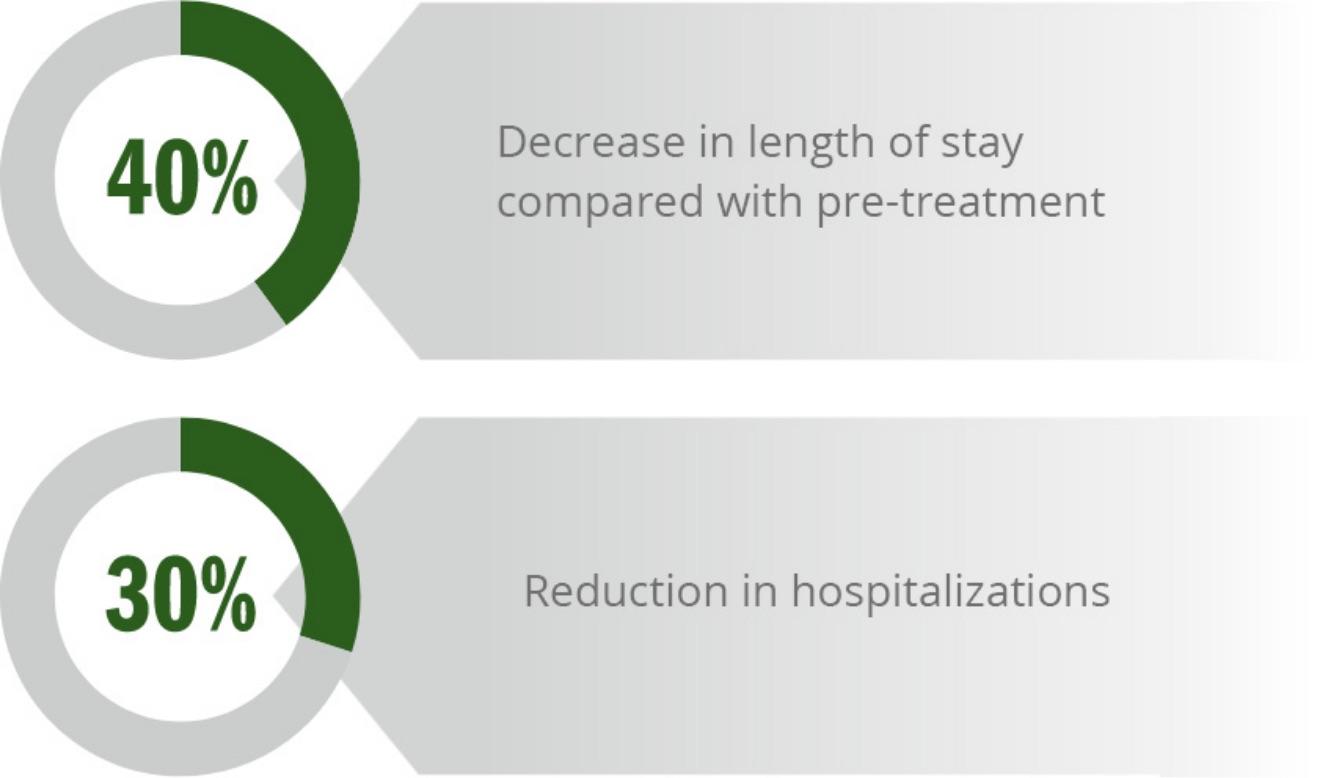Nephrology
Advancing non-invasive intradialytic parenteral nutrition to support patients on long-term hemodialysis.
Intradialytic parenteral nutrition (IDPN) is a non-invasive and supplemental nutritional therapy that can be provided to patients on hemodialysis (HD).1 IDPN is associated with a 30% reduction in hospitalization rates and may shorten the length of hospital stay by 40%.2 Baxter develops PN solutions that can optimize nutrition support of long-term HD patients for whom oral nutritional supplements or enteral nutrition is insufficient, contraindicated or fails to meet nutritional needs.

Malnutrition is widespread in hemodialysis patients
According to a global meta-analysis, malnutrition can be found in 28-54% of patients on chronic HD therapy.4 The underlying reasons for malnutrition are both multiple and complex and involves HD-related loss of key nutrients from the bloodstream that cannot be compensated for by additional nutrient intake via oral or enteral routes.5 End-stage kidney disease patients with malnutrition are at an increased risk of requiring hospitalization6 and of suffering from co-morbidities such as cardiovascular disease and infection, lower quality of life, accelerated disease progression, and increased mortality.7,11-13
Protein energy wasting can put your HD patients at risk and is an independent predictor of morbidity and mortality9
Protein energy wasting (PEW) can be a serious syndrome observed in kidney disease patients and is characterized by the depletion of protein and energy reserves. The underlying pathophysiological mechanisms are multiple and include factors related to ESKD, comorbidities, dialysis, and inadequate nutrition.5 A global meta-analysis of 90 studies on PEW incidence in kidney disease patients on HD therapy reported a median prevalence of 43%, making it a frequent syndrome in this patient group.10 PEW can lead to complications and has a negative impact on prognosis and quality of life.7 The prevalence of the syndrome increases with time on dialysis and appears to be more prominent in older patients.9

IDPN is recommended by international guidelines
ESPEN guidelines on clinical nutrition in hospitalized patients with chronic kidney disease recommend that IDPN composed of macronutrients (protein, carbohydrates and lipids) is applied in malnourished non-critically ill patients on HD. Furthermore, IDPN is recommended for patients at risk of malnutrition who cannot tolerate, or fail to respond to, oral intake with or without oral nutritional supplements or enteral administration of nutrition. The ESPEN recommendation is based on several randomized clinical trials which documented nutritional improvements from IDPN in patients on HD therapy and overt PEW.4
IDPN is associated with:

IDPN is non-invasive, easy to administer and independent of patient compliance
Through the evolution of high protein, small volume multi-chamber bags with licensed dosing for IDPN, Baxter provides non-invasive options for delivering balanced nutrients during the hemodialysis session without relying on patient compliance. The available solutions present safe and convenient approaches to nutritional therapy, which can improve health outcomes by replenishing the nutritional needs of your ESKD patients.

